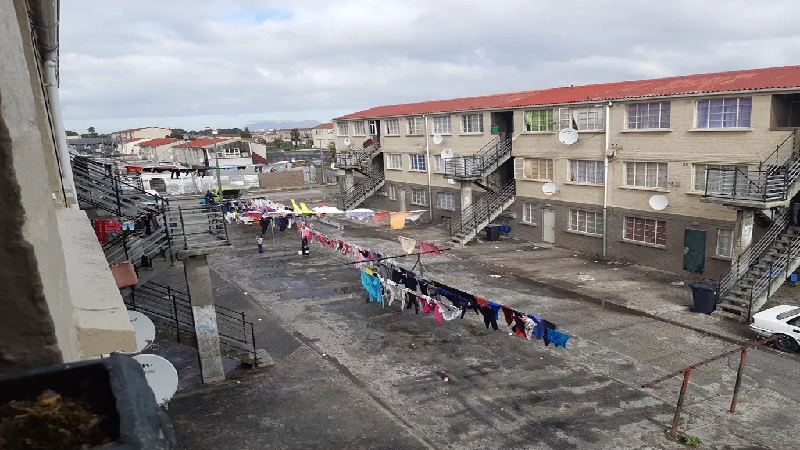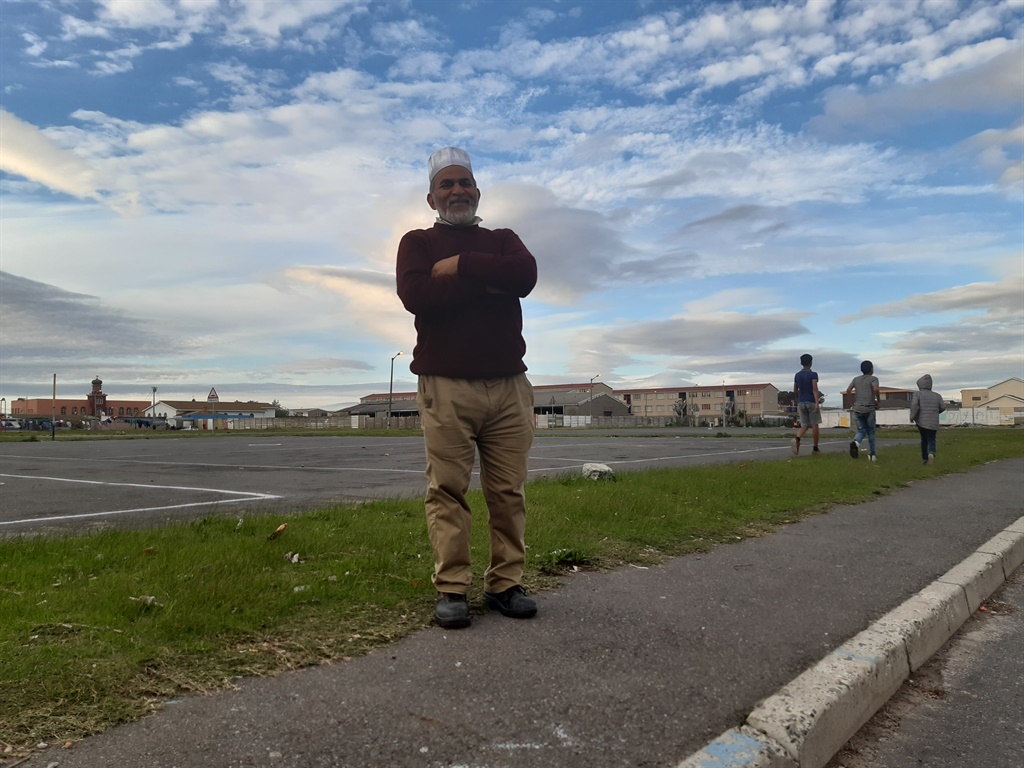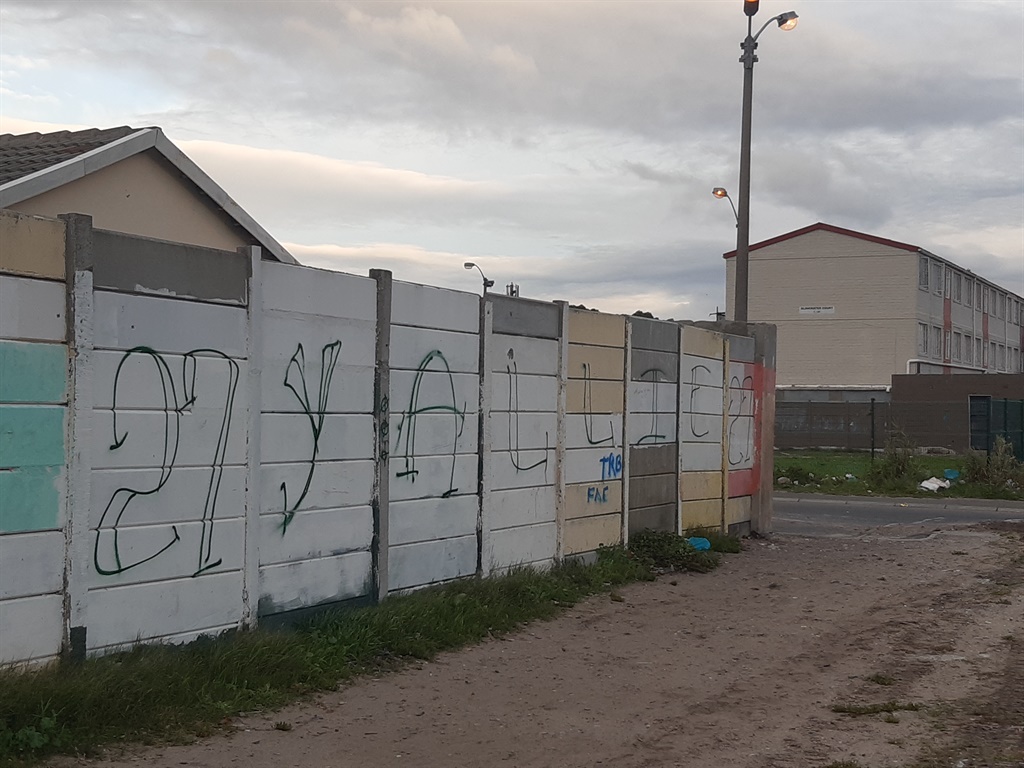The hands holding the guns behind the bullets and bloodshed in Hanover Park are not tattooed, weathered or even fully developed.
“They belong to children, some not even teenagers yet,” Ebrahim Abrahams says with a shake of his head.
“Those hands should be holding pens while doing homework. Instead, they are clutching firearms and running through the streets, killing.”
Abrahams is the chairperson of the Philippi Community Police Forum. He has been a member of the local SA Police Service (SAPS) watchdog for the past 20 years.
Only 13 when the Group Areas Act forced his family out of District Six and into the undeveloped plains of the Cape Flats, Abrahams was still in his teens when he became a gangster.
“I wore the leather jacket with the Mayfairs [trousers], walked around in my Grasshoppers [shoes]. I know gangsterism – I was young when I was introduced to it,” he recalled.
But the groupings that ruled the newly established coloured townships in the 1970s are very different to the violent gangs of today, Abrahams believes.
“Now, children are the ones running with the guns. Laaities (children) as young as 12, shooting in our streets. Years ago, these kids were used to get rid of the weapons. Now they can’t wait to sabela (use gangster slang) and pull the trigger themselves.”
Age-old problem
Gangsterism is an age-old problem in Hanover Park, a low-income area about 17km from the Cape Town city bowl.
According to sources, the recent upsurge in violence is due to a turf war between the Americans and the Ghetto Kids, fuelled by retaliation killings.
The two are the biggest gangs in Hanover Park, followed by the Laughing Boys and the Mongrels.
The gang war that Abrahams says has resulted in between 50 and 60 gunshots being fired every day for the past three months has been going on for decades.
Some months are more quiet than others, he explains.
The area is serviced by the police who are unable to understand the dynamics of the area they are working in, focused only on the crime after it’s been committed, Abrahams argues.
“But who is being proactive, looking into what is causing our children to take this road? It’s bad parenting, poverty, unemployment and poor service delivery that are among the root causes. Focusing on catching those walking around with drugs in their pocket or an unlicensed weapon in reactive. What is being done to fix things?” Abrahams asks.
“The community police forum was established to hold the authorities accountable. We are the mouthpiece of the people. But instead, the SAPS want to work against us. They see us as a problem.
“People here don’t have faith in the police. You can’t blame them when dockets go missing, vans are unavailable, and complainants wait an hour for them to pitch.”
Crime operations
He claims minimal arrests have been made since the renewed gang war outbreak.
Police spokesperson Captain FC van Wyk said frequent crime operations were being conducted in the precinct, “yielding significant operational achievements to combat gangsterism and gang-related crimes”.
“Members of our Anti-Gang Unit in collaboration with local police and other units, have been deployed to the area to combat the violence,” he added.
President Cyril Ramaphosa launched the Anti-Gang Unit in Hanover Park last year.
Van Wyk said the national anti-gang strategy sought to address gangsterism in a holistic manner with a focus on “street-level outreach, community development, conflict mediation and changing community norms in order to reduce violence and criminality”.
In June, Minister of Police Bheki Cele said the unit did not have enough officers and the police were looking at other ways to curb crime in the province.
He eventually escalated the unit to his national office, owing to reported infighting, budgeting and capacity constraints.
‘It’s easy to say – but no one says how’
This week, Western Cape Premier Alan Winde confirmed that more than 2 300 people have been murdered in the province between November 2018, when the Anti-Gang Unit was launched, and May this year.
He said several community police forums have called for the deployment of the defence force.
Winde argued that the deployment of the army as peacekeepers would act as an additional tool in the fight against criminals.
It would also free up the police to do investigative work that would help put syndicates, gang leaders, drug dealers, murderers and other criminals behind bars, he said.
“Any move that seeks to take back the power from gangsters and criminals, and which puts more boots on the ground, should be considered and supported.”
Abrahams believes a more holistic approach is needed to make Hanover Park safer while also helping those behind the shootings turn their back on a life of crime.
“Young people need options. What are their alternatives? What can be done for them so that they can choose a better life? It’s easy to say that gangsterism needs to be eradicated. But no one says how. I know what I am talking about – I have been there.
“We need to sit and discuss. Who is the gangster? He is someone’s child. He probably belongs to a church or mosque. He has dreams. He is a part of this community. Where did it go wrong? And how do we fix it? Before then, we can’t put a plan into action.”
This story is part of a three-part “Gang Wars” series, which, this week, will focus on Hanover Park. Part 3 will be published on Tuesday.
(Source: News24)








 WhatsApp us
WhatsApp us 

